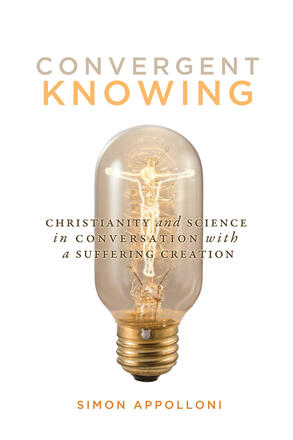
Convergent Knowing
Christianity and Science in Conversation with a Suffering Creation
A compelling exploration of a new epistemic framework for Christian ethical thinking.
Description
Global environmental destruction, growing inequality, and the persistent poverty afflicting the majority of humans on the planet challenge Christian theorists, theologians, and ethicists in their pursuit of an ethical vision that is both environmentally sustainable and just for all of creation. Too often their visions – which start with traditional understandings of the Christian faith, prevalent approaches to science, or current ethical models – are inadequate. In Convergent Knowing Simon Appolloni proposes a new framework for ethical deliberation in which the epistemological lines between religion and science are somewhat blurred. This framework opens up avenues to explore new paradigms for Christianity, science, and liberation while addressing interrelated questions not always manifest within the religion, science, and ethics debates: what kind of ethics, what kind of science, and what kind of Christianity do we need today and tomorrow when the liberation of countless subjects of creation is at stake? Exploring and analyzing the work of Rosemary Radford Ruether, Leonardo Boff, Diarmuid O'Murchu, and Thomas Berry, four Christian ethical thinkers who have borrowed from the natural sciences to unite a liberationist agenda with an environmental ethic, Convergent Knowing assists Christian thinkers struggling to integrate science, environment, liberation, and their faith.
Reviews
"What makes this work particularly valuable is the way in which it represents a diversity of visions for engaging science and the call for cultural change from within the Christian tradition as he situates the inquiry in the experiences, thought, limitations and beacons of four Christian eco-practitioners. Through these well-told stories Appolloni not only opens the internal structure of Christianity to the ecological principle of diversity, but also outwardly opens this tradition that has historically been focused on universality and conversion into potential learning relationships with interfaith, Indigenous and secular science worldviews." Timothy Leduc, Wilfrid Laurier University and author of A Canadian Climate of Mind: Climate, Culture, and Change
"Against a simplistic mechanistic empiricism, Appolloni and his interlocutors want to insist that the scientific process is not purely rational. It entails the entire spectrum of human experience, involving a fragmented social community, social forces, habits and biases. This is sometimes a heavy read, engaging complex matters of great contemporary importance. It is richly informative and rewarding for those who persevere." Touchstone
"A thoughtfully constructed, comprehensively researched, and challenging book." Environmental Values